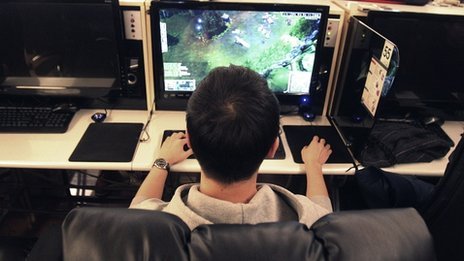
Unstuck recently posted some great lessons on empathy:
Empathy lesson 1: Slow down and put yourself in a neutral state of mind.
The brain is pre-set for empathy. There’s a section called the supramarginal gyrus where the capacity for empathy and compassion resides. The scientists who discovered this in 2013 also learned that the brain does not activate empathy if 1. we’re forced to make quick decisions and 2. our current emotional state is the opposite of the other person’s (I’m having a good day; nothing is going right for you).
Empathy lesson 2: Consciously ask yourself, “How might this person think and feel about this?”
Researchers have also learned that people with low empathy tendencies (such as narcissists) can increase their ability to step outside of themselves when directed to look at a situation from another’s point of view.
Empathy lesson 3: Exercise your mind in ways that help empathy occur more naturally.
Science has known for more than 100 years that the brain is “plastic,” meaning it can reorganize itself and make new connections. Now, several recent studies have found that meditation can grow fibers that connect separate areas of the brain. This interconnectedness builds “the gateway of empathy and compassion through mindful meditation,” says Dr. Dan Seigal, executive director of the Mindsight Institute. The loving-kindness meditation, in particular, helped direct the brain’s attention to a more compassionate mindset.
How to build an empathy habit
Meditation can pave a wider gateway to our empathy, but like guest-speaking at an event, we need to know what to do once we get there. So let’s break empathy down into five areas that are practicable. After awhile, those pieces should naturally put themselves back together again.
1. Understand yourself. Before we can extend empathy to someone else, it helps to be in touch with our own experiences and emotions, and what they’ve taught us. A shining example of this is Zak Ebrahim, who outed himself at TED 2014 as the peace-loving son of a terrorist. Throughout his childhood, he was bullied for his appearance. This, he says, “created a sense of empathy in me toward the suffering of others.” (You can watch his talk here.)
2. Listen fully. When you follow these rules, you’ll hear more:
• Let the other person do most of the talking.
• Look at the speaker.
• Don’t interrupt but do make encouraging responses and nods.
• Ask questions that allow the speaker to expand on the topic.
3. Recognize the unspoken. Humans speak volumes with their eyes and facial expressions (ever notice someone whose mouth is smiling but her eyes aren’t?). Test your eye IQ with this simple, but not so easy, eye-reading test. Also look for microexpressions that occur in less than a second and reveal how someone is feeling at that moment. This guide will help you read them.
4. Reserve judgment. Put aside your point of view so you can consciously hear and see the situation from someone else’s. You don’t have to agree with the other person, but you do need to accept what is, rather than focus on what you think it should be. If you find yourself lapsing into judgment mode, switch to curiosity and try to get a better understanding of the situation.
5. Acknowledge. The goal is to let the speaker know that you’ve heard and understood what he’s saying. This usually includes acknowledging feelings (“that sounds hard,” “you seem overwhelmed”) as well as beliefs. This encourages the other person to continue to open up. NB: Acknowledging never involves giving advice, changing the topic, or disapproving.
You can practice these empathy interactions with a friend by sharing experiences and thoughts with other each that you might not ordinarily reveal.
Ask your partner some of the questions below or any from this list designed by social psychology researcher Arthur Aron to foster closeness by building empathy. Allow yourself to be vulnerable and, in turn, listen without judgment:
• What do you feel most grateful for in your life?
• If you could change anything about the way you were raised, what would it be?
• Is there something that you’ve dreamed of doing for a long time? Why haven’t you done it?
• What is an embarrassing moment in your life?
• What is a problem you’re dealing with right now that you wish you had help with?
The more you practice empathy, the stronger those muscles become until you can count on them to help you — and others — in any stuck moment.


